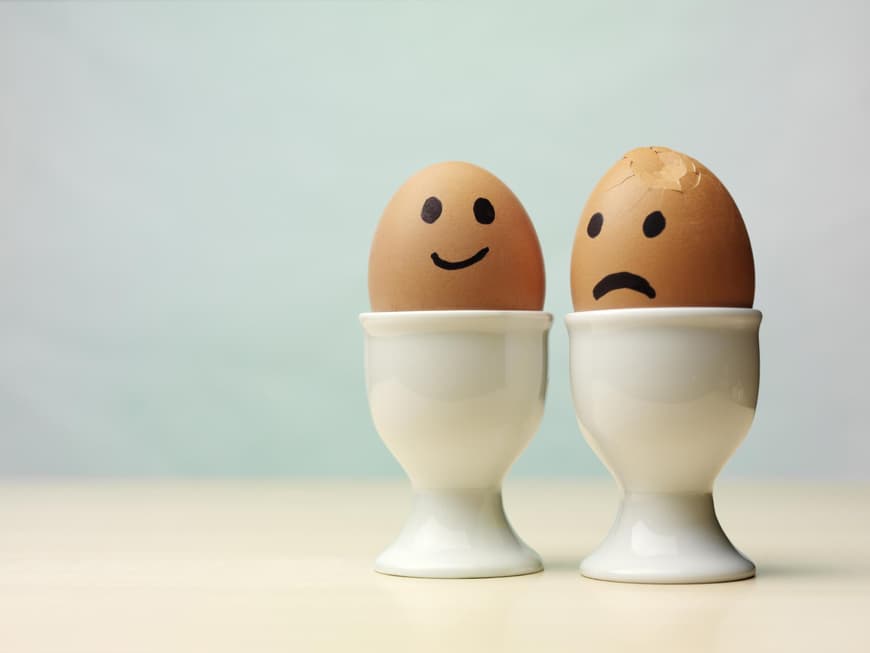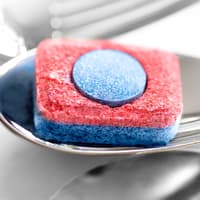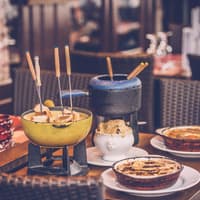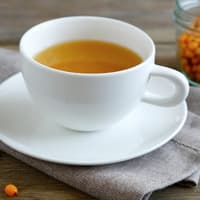
Perfectly cooked eggs
Eggs will not crack when boiled if they are placed in a saucepan just covered with cold water and only then heated. Boiled eggs are easier to peel if they are placed in a bowl of cold water for about 30 seconds after boiling.
Freshness test
Place the egg in a glass of water. If it sinks to the bottom, it is still fresh, if it stands up, you should eat it very soon, if it floats to the top, it is inedible! Eggs can be stored in the fridge for up to four weeks.
How long does the egg keep?
How long do hard-boiled eggs actually keep? When cooking eggs yourself for brunch or the Easter nest, you should make sure that the eggs have not been cracked during cooking. If the shell is damaged, germs can penetrate and the eggs will spoil more quickly. They should then be placed in the fridge and eaten within a few days. Hard-boiled eggs from the shops can be kept for several weeks at room temperature, provided the shell is intact.
Savory variation: brine eggs
Crack six hard-boiled eggs so that the shell cracks all around. Layer in a jar. Boil 30 g salt, 1/2 tsp sugar, caraway seeds, black peppercorns, 1 allspice leaf, 1 bay leaf and the peel of an onion in 1/2 l water. Pour over the top. Leave to infuse in the fridge for 2 days. Peel, season the egg yolk with vinegar, oil and pepper.
Get rid of the yolks!
Only use fresh, undamaged eggs. Germs could penetrate through cracks. Wash with water and washing-up liquid. Poke holes in the top and bottom with a needle, then pierce again with a knitting needle. Place a straw in a hole and blow vigorously.
Brown or white eggs?
The color depends on the breed of the hens and therefore their genes. You can tell what color the eggshell will be by the color of the ear disc, which in chickens are the earlobes. If the ear disc is red, the hen will lay brown eggs in the nest, if it is white, the eggs will be white.
Brown = organic?
This is a misconception. But because many people believe this, the demand for brown eggs is greater. It's different at Easter: the white variety is preferred for coloring.
Quenching
Whether an egg is easy to peel does not depend on whether it has been quenched, but on how long it has been stored. Fresh eggs are harder to peel than older ones. Do not quench hard eggs, as bacteria can penetrate and the shelf life will be greatly reduced.
Raw or cooked?
You can easily tell the difference between a raw egg and a cooked egg: Lay both on their side and turn. The cooked egg turns much faster, longer and more evenly.
Why are there colored, boiled eggs at Easter?
In the past, it was strictly forbidden to eat eggs or egg dishes during Lent. But the hens kept on laying. As there were no refrigerators in the Middle Ages, eggs were boiled to preserve them for longer. So that the "old" eggs could not be confused with the fresh ones after Lent, they were dyed red. And this tradition of dyeing eggs has remained with us to this day ...






